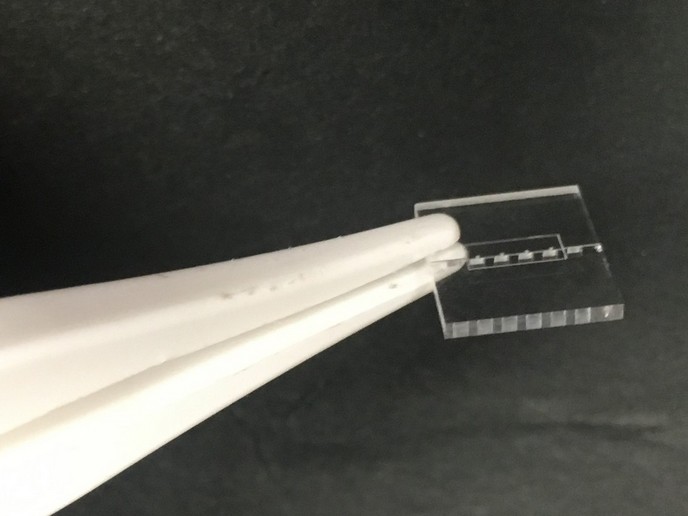Disposable hand-held biosensing platform
Most currently used biosensing devices are either in the form of lateral flow immunoassays or quantitative lab-based systems. To combine the best of both types of systems, the E-GNOSIS (e-Gnosis: a novel platform technology for quantitative mobile diagnostics) project aimed to develop a disposable biosensor chip that is user-friendly while having high sensitivity and multiplexability. Researchers designed and fabricated chip-based electrochemical assays that were connected to read-out equipment and tested. These chips comprised recessed ring-disc/ring electrode arrays made of gold and platinum that had diameters in the micron range and electrode separations in the nanometre range. To carry out chip biofunctionalisation, the team selected a set of commercially available target/probe kits. Delamination during electrochemical cycling in liquids initially caused chip failure and it represented a major hurdle to successful realisation of the E-GNOSIS chips. The team developed a working protocol and managed to enhance chip stability and lifetime in liquids. However, crucial equipment for chip fabrication at the facility failed and not enough chips could be produced to complete optimisation and testing with antibodies. Chip packaging is another crucial aspect that was extensively investigated. Researchers tested the utility of different approaches including flip-chip bonding, wire-bonding, and designing and fabricating a custom chip-holder. A commercially available gas sensor chip (LMP91000) and a Raspberry Pi single board computer were used to build, programme and test a low-cost potentiostat with their electrochemical chips to show the technology’s potential for use in low-cost Point-of-Care diagnostic applications. Already, the E-GNOSIS chips and potentiostat can be used as electrochemical sensors in research and teaching. The performance of recessed ring-disc electrode arrays has proven superior when compared to a variety of other electrode configurations. Furthermore, the potentiostat is far cheaper than currently available commercial systems. For successful commercialisation of their hand-held electrochemical instrumentation, the E-GNOSIS team needs to work on building a medically relevant immunoassay. Applications extend beyond biomedicine to environmental monitoring, battery testing, and science education.







